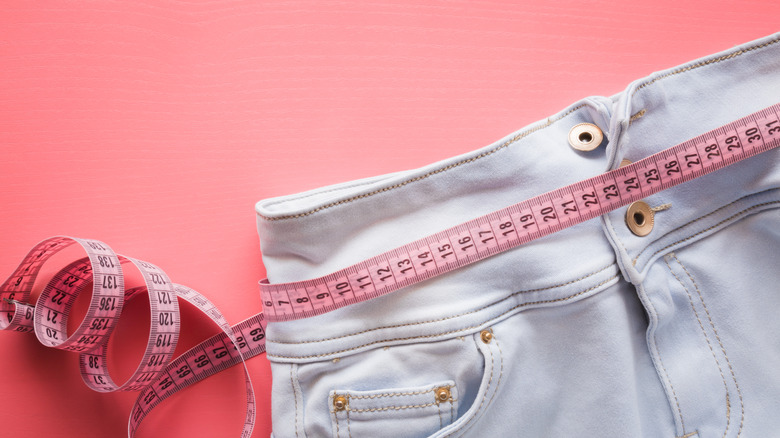What Happens To Your Metabolism In The Summer
During the months of winter, we're likely curled up on the couch for hours on end when it's freezing out. The urge to hit snooze and skip our morning spin class at the gym to stay under the warm covers is strong. And sure, turkey doesn't have many calories. But all of the other food tied to the winter holidays isn't doing our waistlines any favors. Yes, weight gain in the winter is understandable. But weight gain in the summer? How can we blame the warmer months for the extra pounds?
Surprisingly enough, many of us are likely to gain just as much weight in the summer as we do in winter. The first explanation has to do with our lack of routine. According to Fatherly, the longer days have us naturally staying awake longer and losing sleep. And when we do sleep, many of us struggle to have a solid eight hours, as it is so hot, we're left tossing and turning the whole night. All of this lack of shut eye increases the production of the stress hormone cortisol, which increases our cravings for quick energy from unhealthy sugar (a second scoop of ice cream anyone?).
Our metabolism has to take on the extra lack-of-sleep sugar cravings. And in addition, it likely has to take on the extra calories in a depleted state.
Crash diets could crash your summer visions
Our attempts of getting a "summer bod" with crash diets could actually be the reason our bathing suits are feeling a little snug by mid summer. "Summer weight gain is often simply the biological response to pre-summer attempts at weight loss," says health coach and fitness specialist Ragen Chastain to Fatherly. "That lose-gain cycle can be compressed with more extreme dieting. So that crash diet they sold you to get your summer body will actually be likely to give you your summer weight gain."
It's easy to point the finger at the extra sugar and the crash diets. But even if you have refrained from both of these, you could still be gaining those few unexplained pounds. According to a clinical trial published via NIH, metabolic responses were shown to be working at a faster rate during the winter time instead of in the summer. Our body is working overtime to stay warmer during the freezing months, which revs up our metabolism. Shorts and flip flops are wonderful items to throw on. But they also signify that our body doesn't need to work extra hard to stay warm, thus, slowing down our metabolic rate.
You'll never find us complaining about the sunshine or the BBQ dinners. But now that we know all of the reasons as to why we could be sneakily gaining weight, we'll keep them in mind in preparation for the warmer days ahead.


